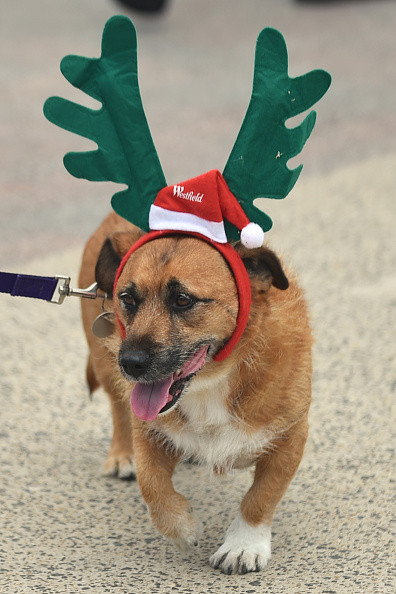British couple cloning puppies from their dead dog for $100,000

Yorkshire-based Laura Jacques and her partner Richard Remde are the first British customers of South Korean's Sooam Biotech Research Foundation, which clones dogs. The service costs about $100,000 (£67,000) for each dog, regardless of how many puppies are born.
Jacques, who is a dog walker, and her partner Remde, manager of the Heritage Masonry & Conservation, lost their boxer Dylan to a brain tumour in June this year. The couple reportedly extracted the DNA samples themselves, 12 days after Dylan's death, and flew it to South Korea.
The couple were shortly informed that they were expecting twin puppies, due to be born after Christmas. Speaking of the new addition to their family, Laura said, "I couldn't believe it. We were shocked and ecstatic, my legs turned to jelly. They said that the first puppy was due on Boxing Day and the second one a day later."
Remde said, "It will be like five Christmases coming all at once."
Sooam, based in Seoul, is a non-profit organisation that conducts biotechnological research for "industrial and biomedical applications". It is reported to be one of the leading laboratories in the world for cloning dogs and has reportedly produced over 700 cloned dogs for its customers.
The cloning service involves placing the DNA of a deceased dog into a dog egg which has had its nucleus removed. Once this procedure is successfully completed, cell division is generated by giving the egg bouts of electric shock. The final step is the implanting of the egg into a surrogate female dog. Sooam's official website lists information on how to preserve the remains of their pets so that DNA can be procured safely and successfully for cloning.
Commenting on the impending birth of the cloned twin puppies, a researcher at Sooam, David Kim, told The Guardian, "This is the first case we have had where cells have been taken from a dead dog after a very long time. Hopefully it will allow us to extend the time after death that we can take cells for cloning."
There are currently no laws against pet cloning. However, many animal welfare activist groups have lobbied against it in the EU and the US. The European parliament voted to outlaw the cloning of farm animals in August this year.
A spokesperson of the RSPCA, an organisation against dog cloning, declared: "There are serious ethical and welfare concerns relating to the application of cloning technology to animals. Cloning animals requires procedures that cause pain and distress, with extremely high failure and mortality rates. There is also a body of evidence that cloned animals frequently suffer physical ailments such as tumours, pneumonia and abnormal growth patterns."
Defending Sooam's scientific practices, Kim said: "We follow animal ethics for the laboratory. We have a third-party inspector that comes from the government and a board of advisers. There are set regulations that they check for. We do not use the surrogate mother dogs who carry the cloned puppies more than once."
Jacques reportedly found out about dog cloning from a documentary about a competition that Sooam held in the UK in 2014. The winner of the competition, Rebecca Smith, had her live dachshund, Winni, cloned by the company for free. The cloned puppy, Minni Winni, was born later in 2014 and is reportedly alive and well.
© Copyright IBTimes 2025. All rights reserved.






















